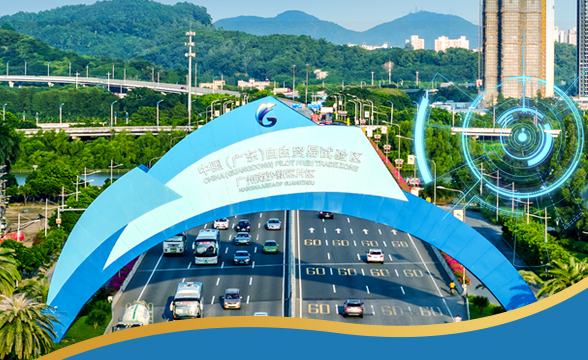Nansha introduces new rules for arbitration over emergency
Guangzhou’s Nansha district issued China’s first regulation pertaining to labor and personnel dispute arbitration during emergencies on Feb 21. The move aims to improve the emergency management mechanism and to innovate social governance.
The novel coronavirus pneumonia (COVID-19) epidemic had a sudden and wide-ranging impact on labor arbitration parties. Local institutions urgently suspended hearing of cases through rescheduling, postponement, or suspension.
Labor arbitration involves basic subsistence guarantees such as wages and work injury treatment. Failure to properly handle those matters during the epidemic may inflict secondary damage on workers.
The regulation applies to the four major emergencies of natural disasters, accident disasters, public health events and social security incidents in accordance with the Emergency Response Law of the People’s Republic of China and the State Council’s contigency plan for public emergency responses.
As a coastal city, Guangzhou is prone to natural meteorological events such as typhoons and heavy rains. The commission will put personal safety first and suspend procedures once the government issues a warning of severe meteorological conditions.
The rules are based on the principle of making things more efficient for people in accordance with law. The commission sends arbitration documents through text messages and emails so that the parties involved do not need to go to the scene during emergencies and so will face less risk of cross infection.
The Nansha Arbitration Commission mediated a wage dispute online on Feb 7, and the company agreed to pay the workers’ wages in court.
The regulation distinguishes procedural authority by warning level.
For emergencies with a warning level of Ⅰor Ⅱ, the commission may directly suspend or postpone the hearing regardless of the wishes of the parties.
Grade III and IV emergencies may be suspended or postponed by the commission upon request by the parties.
James Kong-Tin Wong, deputy chairman of the Greater China Legal Affairs Committee, the Law Society of Hong Kong, said: “In extraordinary times, extraordinary law is required. The regulation is right as rain in highlighting fairness.”
“Using WeChat mini-programs and the Internet to implement online mediation court trials during emergencies not only follows the rules of the higher law, but also systematically refines the applicable procedures in case handling practices,” said Liu Liya, secretary general of the local labor dispute social mediation association.
“For the parties affected by the emergency, it is an intimate, feasible, convenient and practical measure,” she added.
All rights reserved. Presented by China Daily










